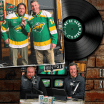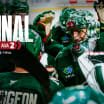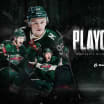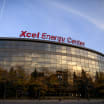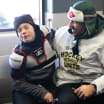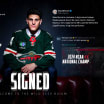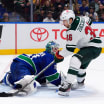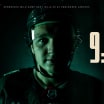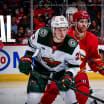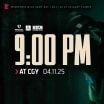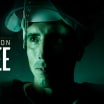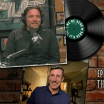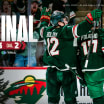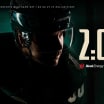ST. PAUL --Minnesota Wild owner Craig Leipold announced a bevy of changes within the business side of the organization on Thursday, highlighted by the promotion of his longtime confidante Matt Majka to President and Alternate Governor. Dan Myers from Wild.com had a chance to sit down with Majka and chat about his new title, what it means for Wild fans and how the organization has evolved over the past 20 years:
Majka Reflects on New Title, Raising Expectations
Wild.com sits down with the franchise's newly minted president to talk about Wild organization
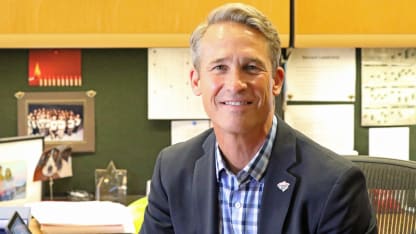
By
Dan Myers
Wild.com
Dan Myers: You've been with the Wild almost since day one of the franchise. For fans that maybe don't know your name, what is it that you have been doing for the team over the years?
Matt Majka: When I came over, I was in charge of marketing. I came over from Rollerblade, where I had worked for Bob Naegele, the first owner of the Wild. I'd worked with him for 13 years, mostly in sales and marketing. When Bob chased this down and successfully got the team, he called me and asked me if I'd join. I thought about that for about two seconds and said I'd be thrilled to come over. I was in charge of the marketing group when I first joined. We had a great run there with our first couple of years with the State of Hockey brand that really came to life with our fans' help. Then, over time, more things and more responsibilities became available. I took on the corporate partnerships department about five years in and when Tod Leiweke, our first president, left, I took on some of his responsibilities and became an executive vice president. Then when Craig came on, he made me chief operating officer. Then we come to today. It's just been increasing opportunities over time with a lot of great people. It's been a great journey and I don't regret a day.
DM: When you look at how much has changed in the 20 years since you came on board with the organization, how has your job evolved over that time?
MM: The word I'd use to describe [it] is 'expectation,' not just our fans, but our employees, all of us. We all have completely different expectations than we did in the early days. I'd say we have completely different expectations than we did even seven or eight years ago. We are now an accomplished franchise that has made the playoffs for five straight years. But we know we need to do better and we all accept that challenge. We all feel the pressure and opportunity [to do better]. Just being honest, when the franchise started, we were all just happy to be here. It was a great day to have hockey back in Minnesota; it was a travesty it ever left. The fans were thrilled with the arena, which broke new ground in a lot of ways. Just having hockey back, it was enough. But it isn't enough anymore and we all agree on that. That's the biggest difference, it's expectations.
DM: President and Alternate Governor is a great title. But what does it mean for fans in layman's terms?
MM: I think it's just another word for driving revenue. I don't feel like my job is all that different, but what we need to do on the business side is continue to think of creative new ways to drive revenue. We're in the fortunate position of having most all of our games being sold out, and yet, there's a finiteness to that; we can't really drive substantially new revenues in the arena because there's a finite number of seats and they're all sold. So we have to look to other avenues, and corporate sponsorship area is an area where you say to yourself, 'If you can dream up inventory, we're not quite so limited by a finite inventory.' If we can dream up a promotion, or a new opportunity that a sponsor can get excited about, we can grow revenues. The area that Jamie Spencer is working in, in business development, with the practice facility, that presents a new opportunity for the organization. I think creativity and driving revenue is what I need to do and what we all need to do every day, and I don't feel that's any different today than it was yesterday.
DM: How fun is it to lead the business portion of a hockey organization in a market that's as passionate about hockey as any in the country?
MM: I just feel completely blessed because this is the State of Hockey; it's no joke, it's not an empty marketing slogan. It's true, it's authentic, everybody knows it. So, first, we're fortunate to be here in Minnesota selling hockey; it turns out it's not that difficult, actually. But there is a deep passion and a fan base that deserves even more. We feel that every single day and it's so gratifying to work with so many passionate and committed people at the Wild. Everybody here, in my view, is completely committed to bringing a Stanley Cup to the deserving fans of the State of Hockey and proud to be on the same team as them.
DM: As someone who has been here from the beginning, seeing so many people who have worked for the organization for a long time get moved up and earn promotions has to be special for you.
MM: It feels great to have the continuity that we have here and we've had a lot of that. There's a number of people who have been here for quite a long time. I think it creates a camaraderie and a predictability that can be good. The challenges for those of us that have been here a long time is to challenge ourselves and to find new ways of doing things. I think you can get stuck in a rut; I blame myself for doing that sometimes. We have to challenge accepted traditions and doing things the way we've always done them. Occasionally, we have to break that mold; that's maybe the downside of the continuity and longevity of our employees. But I think it is offset by the energy and the enthusiasm so many of our employees bring. I'm really impressed with what they bring to work every day.
DM: Much of the on-ice transformation of the Wild is traced back to the summer of 2012, when the organization signed Zach Parise and Ryan Suter. Do you look at that summer as a turning point, not only for the on-ice product, but also from a business perspective?
MM: Definitely. To me, that day, July 4, 2012, was completely transformational for this organization. I give credit to Craig and [Wild GM] Chuck [Fletcher] in particular, for Craig in particular to have the wherewithal to invest like that, and to Chuck and his team to do the work needed to compel Zach and Ryan our way. That was a turning point for this organization that I think will always stand out. We all saw the results of that, almost overnight. We were at a bit of a low point then, at least for us; our season ticket base had decreased and it was hard to see, without something like that happening, exactly how we were going to quickly recover to where we had been. I think since then, we have transformed, on the ice for sure, but also off the ice. It just so happens that in that time frame, really the way in which we market and sell tickets has completely changed, as well, with basically social media. Our marketing methods and outreach is so reliant these days on social media platforms as marketing tools, and this whole notion of one-to-one marketing with our consumers, them allowing us into their lives through social and electronic devices. Five years ago, 10 years ago, it was print, radio and TV. Not that we don't use those anymore, but social has changed, on the business side, completely how we go to market. That's been simultaneous with the change in the team and the Parise and Suter acquisitions.
DM: The practice facility is the next big thing coming down the line for the organization. Do you see any big things after that, at least right now?
MM: [The practice rink] is the big thing right now and that's gonna take a ton of our energy this summer and fall. It's a very exciting opportunity for the organization. Other than that, I think it's up to us to continue to think of new opportunities. There are some there, but it's probably too early to mention them out loud. But we have to continue to challenge ourselves and stay ahead of the curve to realize where consumers are going, where Wild fans are headed in terms of their interaction with the team and how they want to interface with us. That's so different today than it was even five years ago. They interface with us through electronic devices and our website and all of that in a completely different way, and I bet that changes again in another five years. I don't know, sitting here right now, what that's going to be, but we better figure it out or we're going to lose ground. We're in a very good place, but we gotta win a Cup. That's the whole thing, that's what we all want and that's what our fans deserve, and we're not going to rest until we do that.

